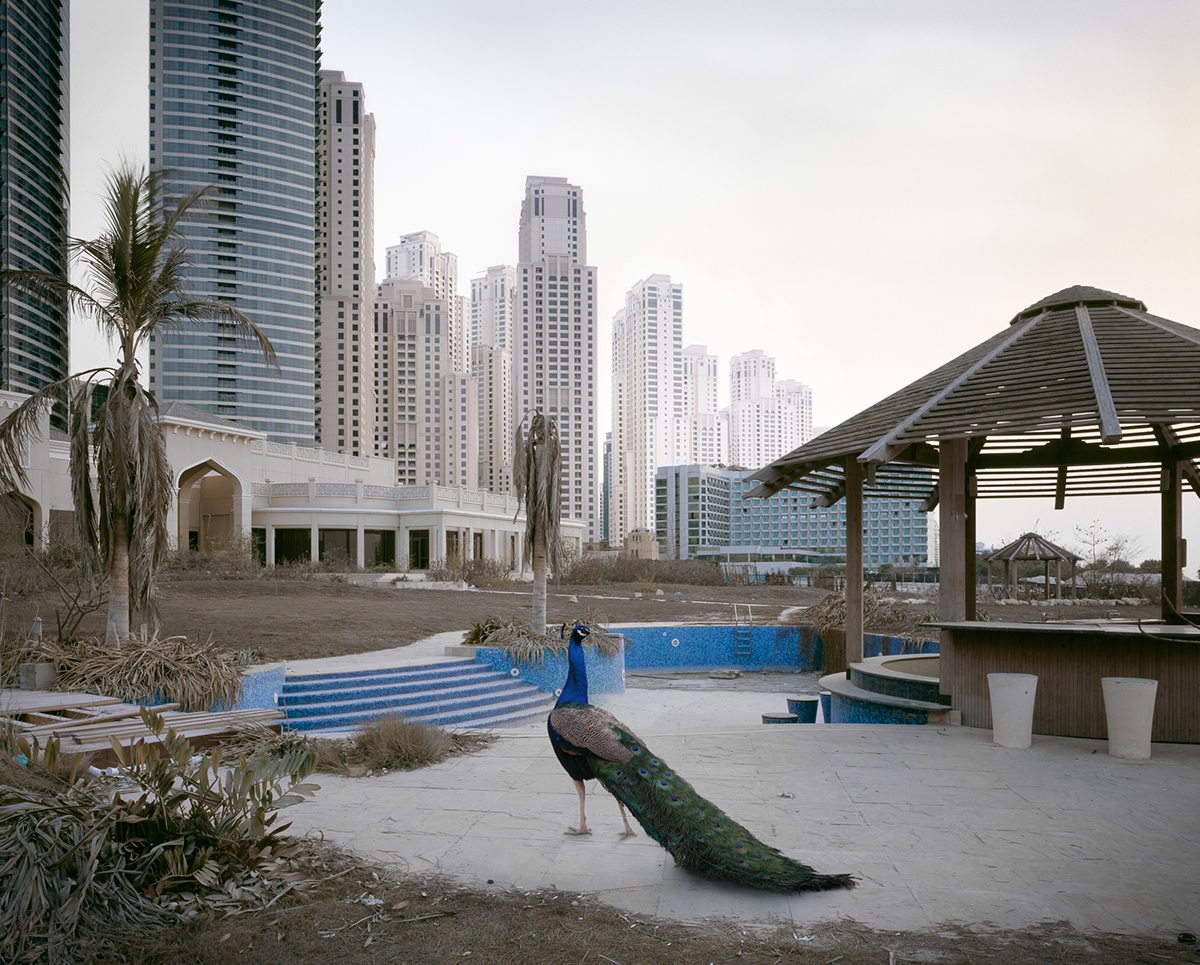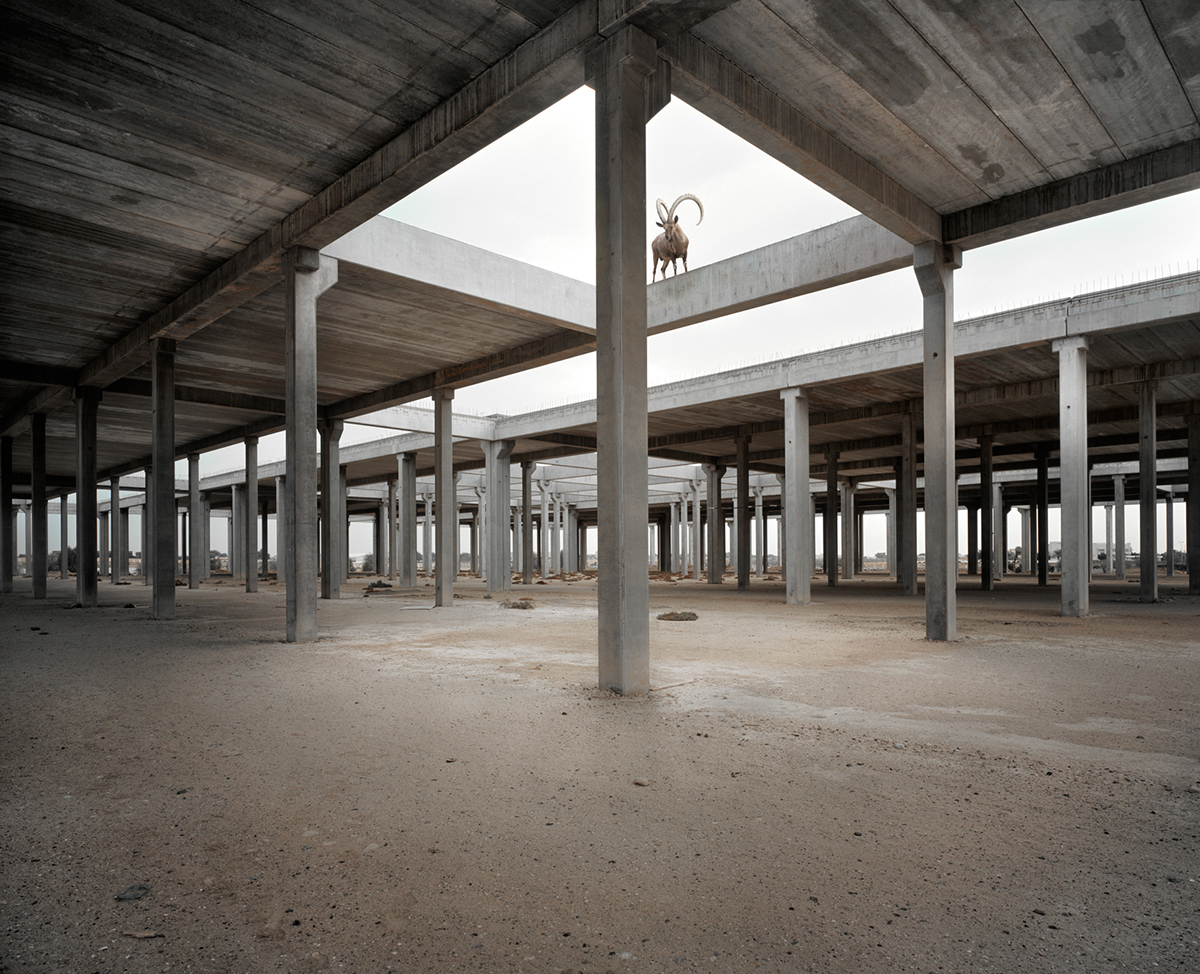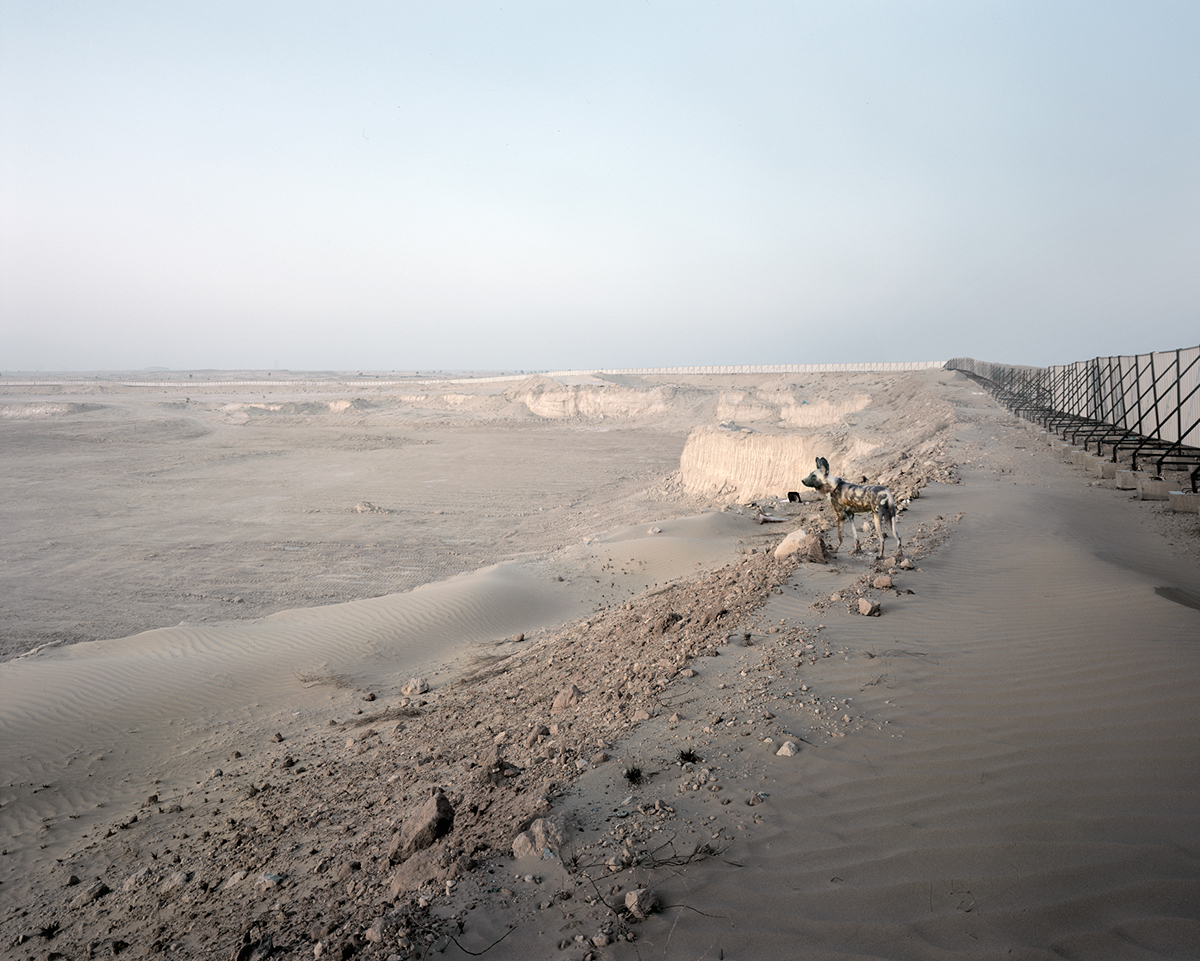Abandoned
Dubai, circa 2017
Dubai, circa 2017
In January 2017 the media reported that the CEO of General Electric in Fairfield, Connecticut had called a press conference to announce his companies' energy research labs' successful development of ground-breaking technology for the cheap and clean separation of Hydrogen from sea water. The prospect of a future with a totally clean, effectively-free, recyclable, and readily available energy source shook the world. The markets reacted immediately and the price of a barrel of oil dropped to below $10.
In Saudi Arabia the market reaction sparked street demonstrations. Force was used to suppress the demonstrations and within months Iran had sent a military intervention force to support an attempted coup d'etat. Saudi Arabia's neighbours in Kuwait, Bahrain, UAE and Qatar were sucked into the regional war, which the international community fell shy of intervening in. Oil still flowed from major producers such as Russia, Venezuela and Nigeria and it was generally felt in the West and far East that the supply of oil from non GCC sources was sufficient to bridge the transition period until full implementation of Hydrogen technology.
By the end of 2017 Dubai was effectively deserted. Many of the wealthy locals left for their summer houses abroad. The evacuation of expatriates had started slowly but soon become a mad scramble as the possibility of Iran's intervention started to look a certainty. Most western expatriates got out before the summer, but tens of thousands of Asians struggled to find transportation and many perished as the power stations and de-salination plants ground to a halt. Humanitarian ships attempting to ferry refugees back to India and Pakistan slowly cleared the backlog of desperate people all along the Gulf coast; a job that was eventually completed by the end of the year.
Before leaving, the caretakers of the UAE's zoos, wildlife parks and private animal collections opened the gates and cages of their facilities. Some animals refused to leave their accustomed accommodations and died there, but many escaped out into the empty streets.
On the outskirts of Dubai there still stood many of the incomplete construction projects, relics from the 2000's building boom. Some of the remaining Bedouin discovered that abandoned excavations and subterranean basements could be easily converted into effective self-replenishing receptacles for groundwater and thereby created oases at various locations around the city. They recognised the potential future value of the wildlife (Some attempts were made to cull the predators, but as the feared attacks on humans never materialised, they gradually became accustomed to the occasional sighting and just exercised sensible caution) Inevitably, after a period of years, certain species were unable to adapt to the harsh environment and died out, but many successfully naturalised and created viable communities that exist to this day. It is generally felt that when the region becomes sufficiently stable again, and an operating international airport can be re-established, Dubai has tremendous potential as an unique eco-tourism destination.
In Saudi Arabia the market reaction sparked street demonstrations. Force was used to suppress the demonstrations and within months Iran had sent a military intervention force to support an attempted coup d'etat. Saudi Arabia's neighbours in Kuwait, Bahrain, UAE and Qatar were sucked into the regional war, which the international community fell shy of intervening in. Oil still flowed from major producers such as Russia, Venezuela and Nigeria and it was generally felt in the West and far East that the supply of oil from non GCC sources was sufficient to bridge the transition period until full implementation of Hydrogen technology.
By the end of 2017 Dubai was effectively deserted. Many of the wealthy locals left for their summer houses abroad. The evacuation of expatriates had started slowly but soon become a mad scramble as the possibility of Iran's intervention started to look a certainty. Most western expatriates got out before the summer, but tens of thousands of Asians struggled to find transportation and many perished as the power stations and de-salination plants ground to a halt. Humanitarian ships attempting to ferry refugees back to India and Pakistan slowly cleared the backlog of desperate people all along the Gulf coast; a job that was eventually completed by the end of the year.
Before leaving, the caretakers of the UAE's zoos, wildlife parks and private animal collections opened the gates and cages of their facilities. Some animals refused to leave their accustomed accommodations and died there, but many escaped out into the empty streets.
On the outskirts of Dubai there still stood many of the incomplete construction projects, relics from the 2000's building boom. Some of the remaining Bedouin discovered that abandoned excavations and subterranean basements could be easily converted into effective self-replenishing receptacles for groundwater and thereby created oases at various locations around the city. They recognised the potential future value of the wildlife (Some attempts were made to cull the predators, but as the feared attacks on humans never materialised, they gradually became accustomed to the occasional sighting and just exercised sensible caution) Inevitably, after a period of years, certain species were unable to adapt to the harsh environment and died out, but many successfully naturalised and created viable communities that exist to this day. It is generally felt that when the region becomes sufficiently stable again, and an operating international airport can be re-established, Dubai has tremendous potential as an unique eco-tourism destination.











